 Series 1
Series 1
Data Visualization
Seminar: August 28 at 5pm
Workshop: August 29 from 10am-5pm
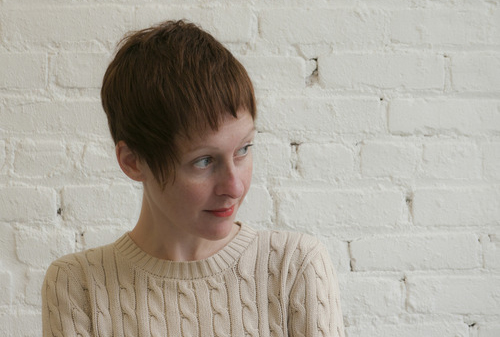
Seminar: Friday, August 28 at 5pm
with Giorgia Lupi, Accurat
Join us in the Brown Institute for a Friday night discussion with Giorgia Lupi, Information Designer and co-founder of Accurat.
You do not need to register for the panel discussion. All workshop attendees must attend the panel.
Bio: Giorgia Lupi is an information designer. Her work in information visualization frequently crosses the divide between digital and print, exploring visual models and metaphors to represent dense and rich data-driven stories.
After graduating in Architecture at Ferrara University in 2006 she has been involved in multidisciplinary projects on the information, technology and interaction design fields, using design and data visualization to convey complex systems of information. She is co-founder and design director at Accurat, a data-driven research, design and innovation firm based in Milan and New York; Accurat analyzes data and contexts and designs analytical tools and visual narratives that provide awareness, comprehension and engagement.

Workshop: Saturday, August 29 from 10am-5pm
with Amanda Cox, New York Times
Registration is closed. Thank you for your interest
Graphical (or pictorial) presentations of data have become an almost essential part of journalistic practice. Data visualization helps us see patterns in data, and is an important tool for finding stories. Also, outlets like The New York Times and The Guardian are publishing data visualizations that push the idea of story telling, creating new data-driven ways to inform and entertain. In this day-long workshop, Amanda Cox, a Graphics Editor at The New York Times, will review some basic data visualization skills. You will start designing on paper and then move to working with (modifiable) code. You will add annotation layers and learn to exploit what's unique about your data. During the day, we will also help you think critically about visualizations, making you a better consumer of data graphics.
Bio: Amanda Cox is a Graphics Editor at the New York Times, where she makes charts and maps for the paper and its web site. Before joining the Times in 2005, she earned a masters degree in statistics from the University of Washington. She received the Excellence in Statistical Reporting Award from the American Statistical Association in 2012 and was part of a team that won a National Design Award in 2009.
 Series 2
Series 2
Mapping & Cartography
Seminar: September 25 at 5pm
Workshop: September 26 from 10am-5pm
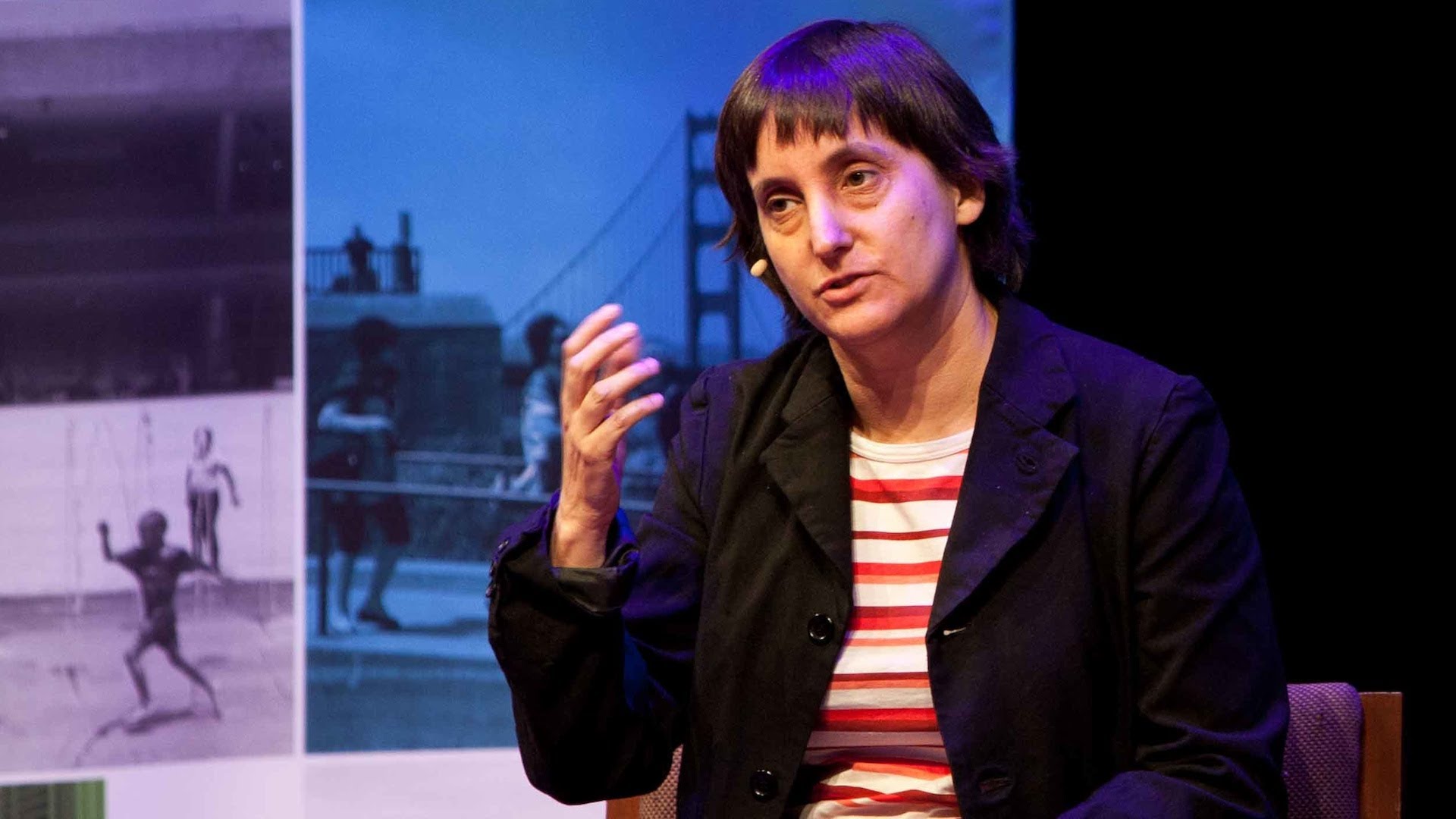
Seminar: Friday, September 25 at 5pm
with Professor Laura Kurgan
Join us in the Brown Institute for a Friday night discussion with Professor Laura Kurgan, Director of the Spatial Information Design Lab.
You do not need to register for the panel discussion. All workshop attendees must attend the panel.
Bio: Laura Kurgan is a Professor of Architecture at the Graduate School of Architecture Planning and Preservation at Columbia University, where she directs the Visual Studies curriculum, and the Spatial Information Design Lab. She is the author of Close Up at a Distance: Mapping, Technology, and Politics (Zone Books, 2013). Her work explores things ranging from digital mapping technologies to the ethics and politics of mapping, and the art, science and visualization of data. Her work has appeared at the Cartier Foundation in Paris, the Venice Architecture Biennale, the Whitney Altria, MACBa Barcelona, the ZKM in Karlsruhe, and the Museum of Modern Art. She was the winner of the United States Artists Rockefeller Fellowship in 2009.
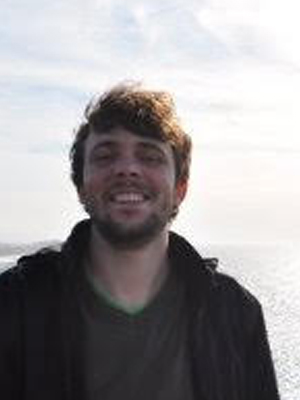
Workshop: Saturday, September 26 from 10am-5pm
with Derek Watkins, New York Times
Registration is closed. Thank you for your interest
The world has always been a connected system, and it's only becoming more so. As a form of journalism, maps contextualize the world by visually linking events to each other and to their geographic surroundings. If your story prompts questions like "What caused this to happen where it did?" or "Does this happen the same way in other places?", a map can probably help illuminate things for your readers. Once the exclusive domain of specialized practitioners, new tools make it easier and easier to analyze spatial data and publish maps online. Derek Watkins, a Graphics Editor at The New York Times, will give a day-long crash course in dealing with geographic data, designing elegant maps, and putting them on the internet. The overarching goal will be learning practical ways that maps can be used as a tool for journalists to tell more compelling stories.
Derek Watkins is a Graphics Editor at The New York Times, where he works as a designer, developer, reporter and geographer to visually present the news. Projects he's been involved with there have been recognized by the Society for News Design, Malofiej, the Ellies and the Emmys. He holds a Master's in Geography from the University of Oregon.
 Series 3
Series 3
Machine Learning & Computational Journalism
Seminar: October 16 at 5pm
Workshop: October 17 from 10am-5pm

Seminar: Friday, October 16 at 5pm
with Chase Davis, New York Times
Join us in the Brown Institute for a Friday night discussion with Chase Davis, New York Times.
You do not need to register for the panel discussion. All workshop attendees must attend the panel.
Bio: Chase Davis is a deputy editor on the Interactive News Desk at The New York Times. I also teach an advanced data journalism class at The University of Missouri and co-founded the company Hot Type Consulting, where he (among other things) helped build and launch the Texas Tribune. In previous lives, he worked as a reporter and the director of technology at the Center for Investigative Reporting and as an investigative reporter at the Houston Chronicle and The Des Moines Register.

Workshop: Saturday, October 17 from 10am-5pm
with Hilary Parker, Etsy
Registration is closed. Thank you for your interest
Data, code and algorithms are changing systems of power in our world, often without sufficient critical assessment or accountability. Today’s journalists need to understand how these forces operate, engaging the underlying computational tools and techniques. At the same time, the ways journalists understand the world and communicate their observations to audiences are also being reshaped by the abundance of data and accessible software to surface stories. Reporters today have an incredible variety of data to work with - from a spreadsheet of Census data, to a collection of Tweets, to all of Jeb Bush's emails, to a compendium court documents in PDF. This is the raw material of "computational journalism." The tools for expressing structure in these rich data sources, for finding and telling stories, can be grouped under the name "machine learning." Through this 1-day workshop participants will have a better understanding of computational techniques, both as objects to report on and tools for reporting.
Hilary Parker is a Senior Data Analyst at Etsy, where she helps product teams become more data-driven. She earned her Ph.D. from the department of Biostatistics at the Johns Hopkins Bloomberg School of Public Health, building tools to help researchers use genomic technologies in personalized medicine applications. In addition to her more formal work, Hilary is one of the few statisticians who have published for the fashion blog The Cut, by New York Magazine.
 Series 4
Series 4
Illustration
Panel: November 13 at 5pm
Workshop: November 14 from 10am-5pm
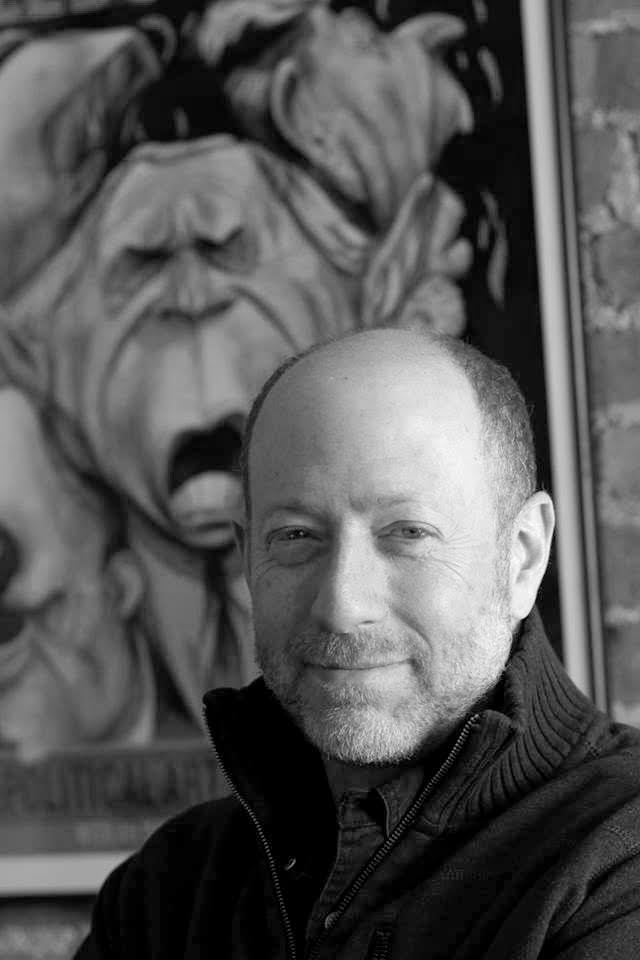
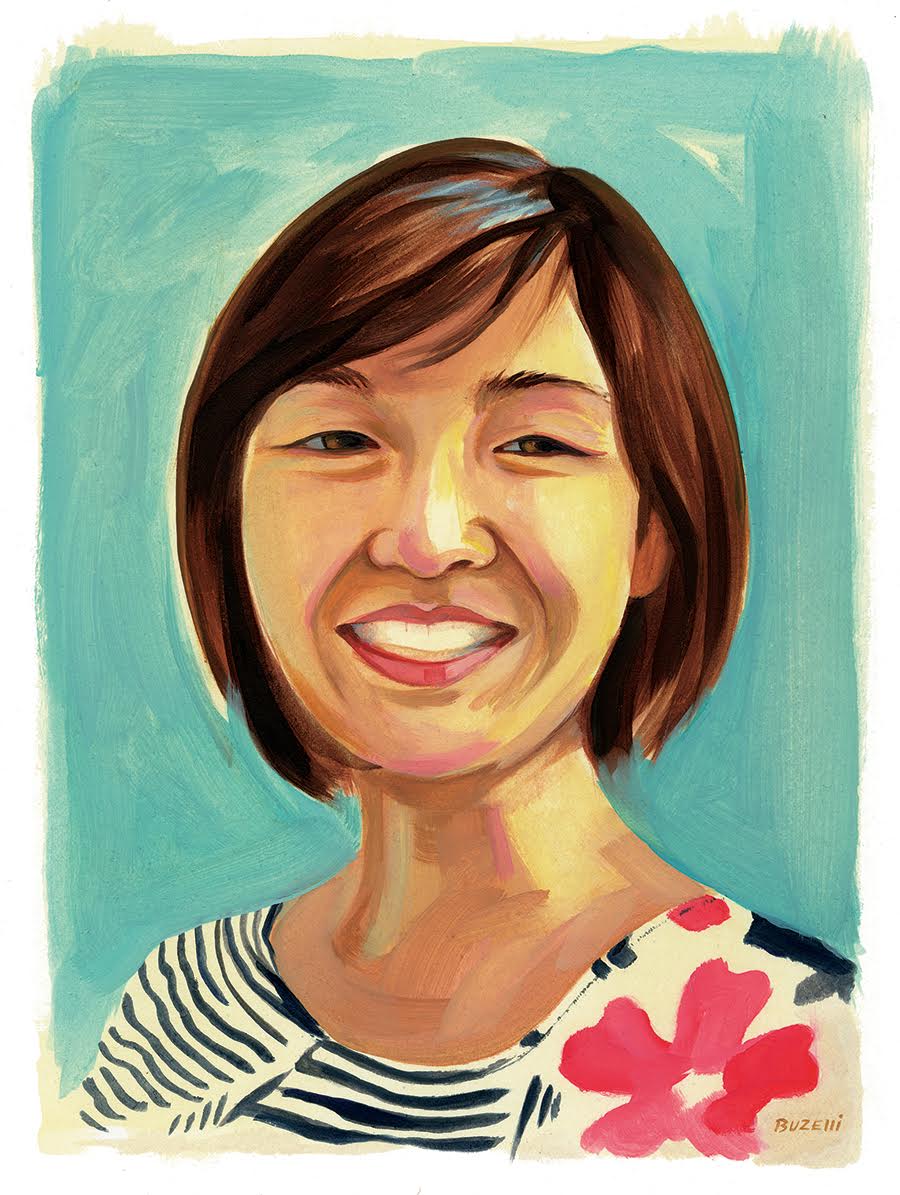

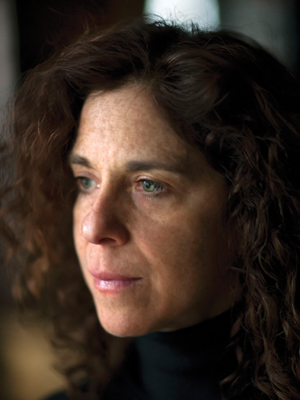
Panel: Friday, November 13 at 5pm
with Steve Brodner, SooJin Buzelli, Len Small and Ellen Weinstein (Moderator)
Join us in the Brown Institute for a Friday night panel discussion with Len Small, Steve Brodner and SooJin Buzelli on illustration as it relates to journalism. The panel will be moderated by Ellen Weinstein, who will conduct the workshop on Saturday.
You do not need to register for the panel discussion. All workshop attendees must attend the panel.
Bios:
Steve Brodner is a satirical illustrator and caricaturist working for publications in the US since the 1970s. He is accepted in the fields of journalism and the graphic arts as a master of the editorial idiom. Currently a regular contributor to GQ, The Nation, Newsweek, Washington Post, Los Angeles Times, Brodner's art journalism has appeared in most major magazines and newspapers in the United States, such as Rolling Stone, The New York Times, The New Yorker, Esquire, Time, Playboy, Mother Jones, Harper's, Mother Jones, The Atlantic. He is currently working on a book on the presidents of the united States.
SooJin is the Senior Vice President, Creative Director of Asset International. She has been art directing and designing financial publications and industry events since 1996. She implemented a new vision for the design of PLANSPONSOR, and translated that success into the art direction of many Asset International's products including PLANADVISER, Chief Investment Officer and CIO Europe. SooJin's art-directed pieces have been recognized by American Illustration, Art Directors Club, Communication Arts, Spectrum, Society of Illustrators, and Society of Publication Designs. SooJin holds an Illustration BFA from Rhode Island School of Design. She is very active in the illustration community: served as a board member to Illustration Conferene and judged many illustration competitions including American Illustration and Society of Illustrators. Recently she was awarded the prestigious 2015 Richard Gangle Art Director Award.
Len Small Len Small is the art director at Nautilus magazine, a science magazine publishing in web and print. Nautilus was awarded two National Magazine Awards in 2015 (General Excellence and Website), and co-designed the American Illustration 33 annual with Esther Wu. He previously served as art director for Tablet Magazine. He earned his MFA from the School of Visual Arts Designer as Author program and his BFA in Fine Arts from Washington University in St Louis.

Workshop: Saturday, November 14 from 10am-5pm
Registration is closed. Thank you for your interest.
Word and image work together to produce beautifully told stories. Metaphor, humor and empathy are powerful visual tools to further engage a reader. Journalistic outlets like The Wall Street Journal, The New York Times, The Atlantic and Nautilus use illustration as an important part of its content. A strong visual will draw a reader to a story. In this daylong workshop, Ellen Weinstein, world-renowned illustrator and frequent contributor to many publications, will introduce basic visual thinking skills that will lead you through visualizing a story from text. How do you employ visual metaphors without being cliché? How do you create visual empathy with a subject? When is humor appropriate? During the day, we will create, discuss and think about word and image, not as separate entities but as halves of a whole.
Ellen Weinstein was born and raised in New York City. She is a graduate of Pratt Institute and New York’s High School of Art and Design. Awards include American Illustration, Society of Illustrators, Communication Arts Illustration Annual, Print’s Regional Design Annual, Society of Publication Designers, and The Art Directors Club. She’s featured in an eight-page article in the March/April 2013 issue of Communication Arts. Ellen’s work is also featured in Illustration Now 5! by Taschen.
She exhibits her work in local New York galleries as well as galleries in the US and Italy. She lectures and conducts workshops in various art schools and internationally including Ilustratour in Madrid, Spain, Fig.o5 Congreso Internacional de Ilustracion in Bogota, Colombia, MiMaster Ilustrazione in Milan, Italy, CEDRA Education in Moscow, Russia, Associazione Culturale Teatrio in Venice, Italy, Amarillo Design Space in Xalapa, Mexico and at ICON6 The Illustration Conference. She is an instructor at the Rhode Island School of Design.
Clients Include: The Atlantic, GQ Magazine, The New York Times, Time Magazine, The Wall Street Journal, Simon & Schuster, Nautilus, Scholastic, PLANSPONSOR, Williamstown Theatre Festival, Master Card Advisors, Georges DuBoeuf wine. Ellen was the President of ICON8 The Illustration Conference that was held July 9-12, 2014 in Portland Oregon. She also served as the Programming Chair for ICON7. Ellen is on the Board of Directors of the Society of Illustrators and serves as Chairman of the Museum Committee.
Website: www.ellenweisntein.com
 Series 5
Series 5
Networks
Seminar: December 4 at 5pm
Workshop: December 5 from 10am-5pm
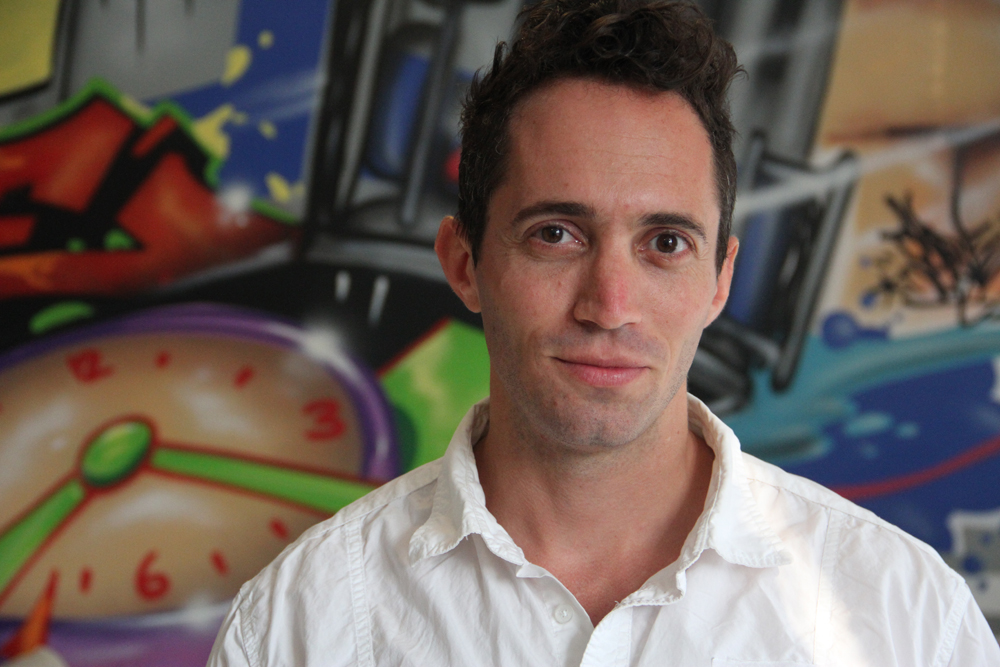
Seminar: Friday, December 4 at 5pm
with Gilad Lotan, Betaworks
Join us in the Brown Institute for a Friday night discussion with Gilad Lotan, Chief Data Scientist at Betaworks.
You do not need to register for the panel discussion. All workshop attendees must attend the panel.
Bio:
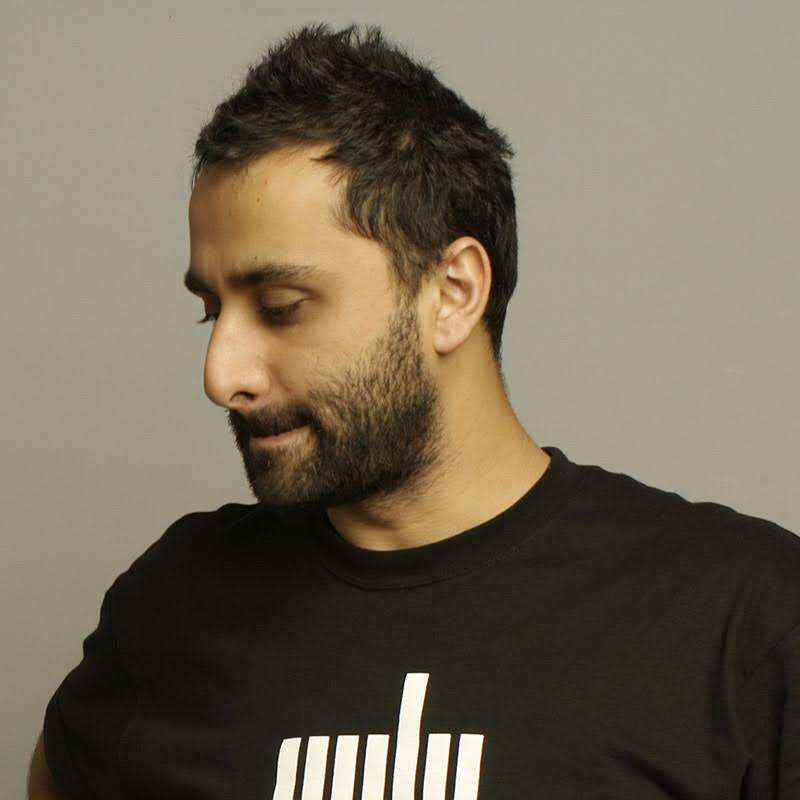
Workshop: December 5 from 10am-5pm
Registration is closed. Thank you for your interest.
with Burak Arikan, Graph Commons
This workshop will focus on the creative and critical use of complex networks through relationship mapping and visual analysis in order to expand the individual’s thinking about the network as a medium. Starting from hand drawn simple graph diagrams, participants gradually build complex network models. Emphasis will be on network mapping / modeling, relational thinking, centrality and clustering analysis, and information design.
The Graph Commons platform will be used for collaborative mapping and analysis, while serving as a diagrammatic knowledge base for the participants' work. graphcommons.com
Bio: Burak Arikan is a New York and Istanbul based artist working with complex networks. He takes the obvious social, economical, and political issues as input and runs through an abstract machinery, which generates network maps and algorithmic interfaces, results in performances, and procreates predictions to render inherent power relationships visible and discussable. Arikan’s software, prints, installations, and performances have been featured in numerous exhibitions internationally. Arikan is the founder of Graph Commons collaborative network mapping platform.
 Series 6
Series 6
News Products
Seminar: February 5 at 5pm
Workshop: February 6 & 7 from 10am-5pm
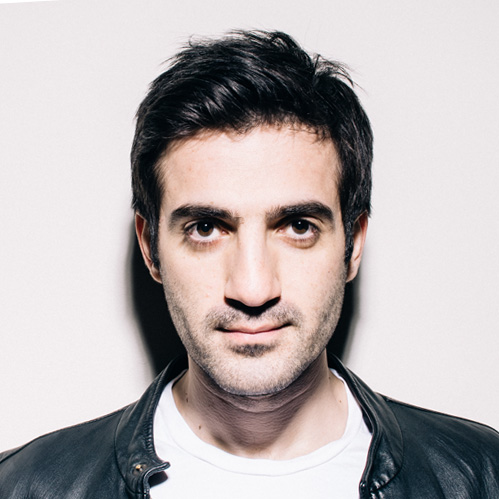
Seminar: Friday, February 5 at 5pm
with Rus Yusupov, Co-founder of Vine
Bio: Rus Yusupov is a designer and entrepreneur based in NYC. He’s best known as the Co-founder of Vine, a mobile service that enables its users to create and share short looping videos. He’s also the founder of Big Human, a digital product design and engineering firm. His passion for the arts is grounded in his education at LaGuardia Arts High School and the School of Visual Arts, from which he holds a BFA in Graphic Design. As a designer, he’s always been passionate about the creative process, and finding ways to improve it for both himself and others.

Workshop: February 6 & 7 from 10am-5pm
with Nicolae Rusan, Kareem Amin, and Brett Martin
Registration is closed for this workshop. If you have applied, we will be in touch regarding the status of your application prior to the event. Thank you for your interest.
Journalists are experimenting with building new mobile and web apps to communicate their content to the public.The ability to manage and build digital products requires a key set of skills, both for this industry and others.This two-day workshop will walk you through this product development process, which usually involves leading a team of designers, engineers, and marketers while reporting to executives or investors.
There will be 3 hands-on sections. In the first one, on design, we will learn the principles of product design and test out ideas quickly by building clickable prototypes. The second section will focus on understanding the basics of code in order to communicate with engineers. We will learn what API’s are and how to design them, and learn why one feature will take 3 weeks vs 3 days. A final section will explore how to choose between different business models and how to reflect that in your product. You will leave this workshop with an understanding of the basics of how to build products, whether you are at a large company or a startup.
Bio: The seminar is led by serial entrepreneurs and investors Nicolae Rusan, Kareem Amin, and Brett Martin. Between the three they have led product development at large tech companies (Microsoft), large non-tech companies (WSJ), fast-growing VC startups and founded three companies - some exited (Frame), some failed (@Sonar), and some still going (@GetSwitch).
 Series 7
Series 7
Sensor-Driven Journalism
Seminar: February 26 at 5pm
Workshop: February 27 & 28 from 10am-5pm

Seminar: Friday, February 26 at 5pm
Allison Burtch, School for Poetic Computation
Bio: Allison Burtch is a thinker, writer and teacher who creates liberation technology. While a resident at Eyebeam, she made an ultrasonic hardware device that protects smart phone users from passive audio surveillance. Her recent work, the “log jammer,” creating a safe space in nature, was featured in Wired and many other publications. She is a member of Deep Lab and taught “Critical Theory of Technology: Politics, Utopia and Code” at the School for Poetic Computation. Previously, Allison was the editor of the Occupied Wall Street Journal, a six-edition print publication which was translated into six languages and distributed globally. She was also a full-time writer for the now-defunct ANIMALNewYork.com, co-organized Prism BreakUp at Eyebeam and the Drones and Aerial Robotics Conference at NYU, led a European biking tour for teenagers and lived on a boat. She has a master’s degree from NYU/ITP.

Workshop: Saturday-Sunday, February 27 & 28 from 10am-5pm
with Tom Igoe, ITP at NYU
Registration is closed for this workshop. If you have applied, we will be in touch regarding the status of your application prior to the event. Thank you for your interest.
In order to gather data about the physical world and our activities within it, we need sensors. Electronic sensors convert changes in various forms of energy (light, heat, sound, etc.) into changes in electrical energy through a process called transduction. Small computers called microcontrollers convert those electrical energy changes into digital data. In order to thoroughly evaluate how reliable our data about the physical world is, we need to understand how this process works.
In this hands-on workshop, you’ll learn the basics of how sensors and microcontrollers are used to gather digital information about the physical world. You’ll connect a variety of sensors to Arduino-compatible microcontrollers and gather data about the physical world yourself. You’ll also learn how to investigate and evaluate sensor-based data-gathering systems.
No programming or electronics experience is required, though interested participants should mention when they sign up whether they have any experience with programming or microcontrollers.
Bio: Coming from a background in theatre lighting design, Igoe believes that all interactive technology design should start with the motivations and actions of the people for whom they're designed. His research interests include physical interaction design, networks, sustainability in technology development, and monkeys. At ITP, he is the aread head for physical computing courses. He has written four books for makers and he is an occasional contributor to Make magazine as well. He is a co-founder of the Arduino open source microcontroller environment. He has consulted for various museums and interactive design companies as well. He is currently living a personal dream of working with monkeys, and wants to visit Svalbard someday.
 Series 8
Series 8
Typography
 Series 9
Series 9
Archive















